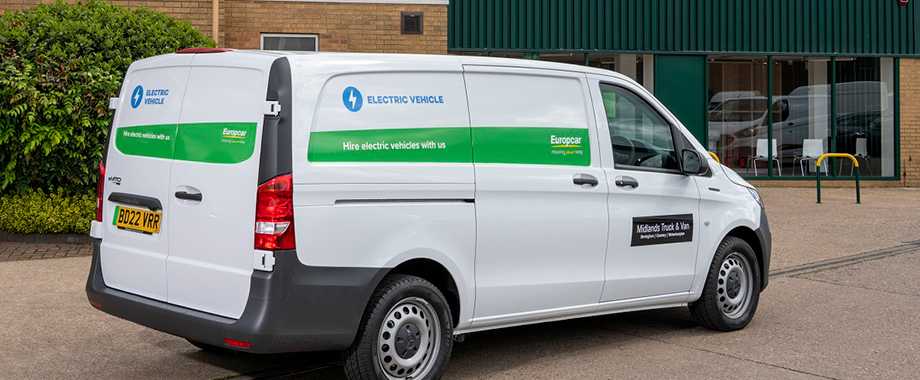Building a future-proofed commercial fleet strategy

The life of a commercial fleet manager is not an easy one. Never mind the usual daily operating tasks, from driver training and logistics to vehicle condition and maintenance, now there’s an even bigger challenge looming. The pressure for businesses to move to low and zero emissions fleets is rising as the 2030 deadline for the ban of new petrol and diesel vehicles gets closer.
The last 18 months have seen vehicle supplies severely hampered. However, there was good news in January’s SMMT data as the first rise in new LCV registrations was seen since September 2022’s plate change. A year-on-year increase of 25.8% in LCV registrations would certainly have been welcomed by commercial fleet managers managing ever-ageing van fleets. But still 6.2% below pre-pandemic January 2020, there’s some way to go in getting supply fully restored.
According to the SMMT, the start of the new year also saw record deliveries of battery electric vans - up 53.5% - accounting for one in 22 vans joining UK roads. The number overall is, however, still small and reflects the conundrum many commercial fleet managers face of how to switch to zero emissions without productivity and business performance suffering.
Dispelling the ‘unknowns’
A key factor for commercial fleet managers is the ‘unknowns’ of electric motoring. The key now is for those responsible for commercial vehicles – whether it’s just one or two or hundreds – to truly understand what’s the right fit for right now – as well as planning for the future. The traditional test drive of a few hours or even a few days no longer really fits the bill. Instead businesses are keen to ‘try before they buy’ to truly understand what electric motoring means in real world conditions.
They are keen to ensure the transition to zero doesn’t have any short-term negative impact on operations and business costs. For example, the impact of payloads on battery charge is a particular concern when it comes to van use. And all of this needs to be juggled alongside managing immediate vehicle needs as fleets get older, while they wait for new vehicle supply.
A steady transition
For all of those reasons making a steady switch, moving from older, higher polluting vehicles to low emissions and eventually to zero is the common-sense approach being adopted by many employers. With a range of low and zero emissions cars and vans, Europcar is helping organisations develop robust environmental policies for present and future operations. It is also focused on offering attractive alternatives to vehicle ownership for those organisations not yet ready to move to zero.
Renting ICE vehicles when needed, rather than owning, naturally reduces mileage and the resulting environmental impact. And if the vehicle is chosen to match the needs of a specific journey this increases efficiency and reduces unnecessary emissions from driving too big a vehicle.
For new EV adopters, Europcar is also offering a rental solution for electric that gives businesses the chance to assess the operational and commercial impact of electric vehicle use and to satisfy driver concerns. Commitment free, Europcar solutions for electric vehicles include a detailed vehicle handover and advice on charging as well as the option for CO2 reporting for valuable insight into emissions. Plus the Shell Recharge card and app provide access to over 10,000 publicly accessible charge points across the UK including more than 240 extra ultra-rapid charge points added to its UK network in January 2023 in a new deal with Motor Fuel Group (MFG).
Navigating CAZ
Short and medium term van rental also helps businesses navigate the growing proliferation of Clean Air Zones (CAZ) being introduced to UK cities. Businesses running non-compliant vehicles will face fines, something which many can ill afford in the current economic climate. The alternative of replacing non-compliant vehicles is also likely to be untenable for many organisations.
With Sheffield the latest CAZ to be introduced at the end of February, fleet managers know they need to make changes to avoid fines for non-compliant vehicles and Europcar’s network of Vans & Trucks Supersites across the UK are playing a key role on this front. All vans on the Europcar fleet are Euro 6 Diesel or Euro 4 Petrol. Therefore employers can be confident that their drivers can go in and out of a CAZ without risk of fines, with a range of rental periods available to cover most business needs. And the Europcar Vans & Trucks Guide can be used to identify the latest models available at a glance, including videos and interactive features to help businesses find the best van or truck solution for their needs. Europcar’s vans specialists at its Supersites can also provide advice and support to businesses considering their options.
Find out more about how Europcar can help your organisation on your decarbonisation journey
